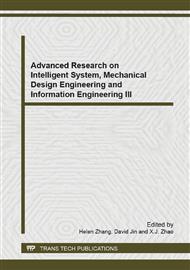p.165
p.169
p.173
p.177
p.181
p.185
p.189
p.197
p.202
Application of Information Technology and Printing Materials in Ideological and Political Learning
Abstract:
Traditional mode of ideological and political education emphasizes that young college learners pass existing moral and legal values to construct their constrained behavior. Rarely does it involve how to guide them to carry out moral and legal issues. However, with the advance of information technology, college learners have more freedom to express their dissatisfaction with real society and understanding of life and browse information they are interested more easily, which makes ideological and political education more challenging. This essay is to study the function and effects of information technology and printing materials in ideological and political education.
Info:
Periodical:
Pages:
181-184
DOI:
Citation:
Online since:
May 2014
Authors:
Price:
Сopyright:
© 2014 Trans Tech Publications Ltd. All Rights Reserved
Share:
Citation:


